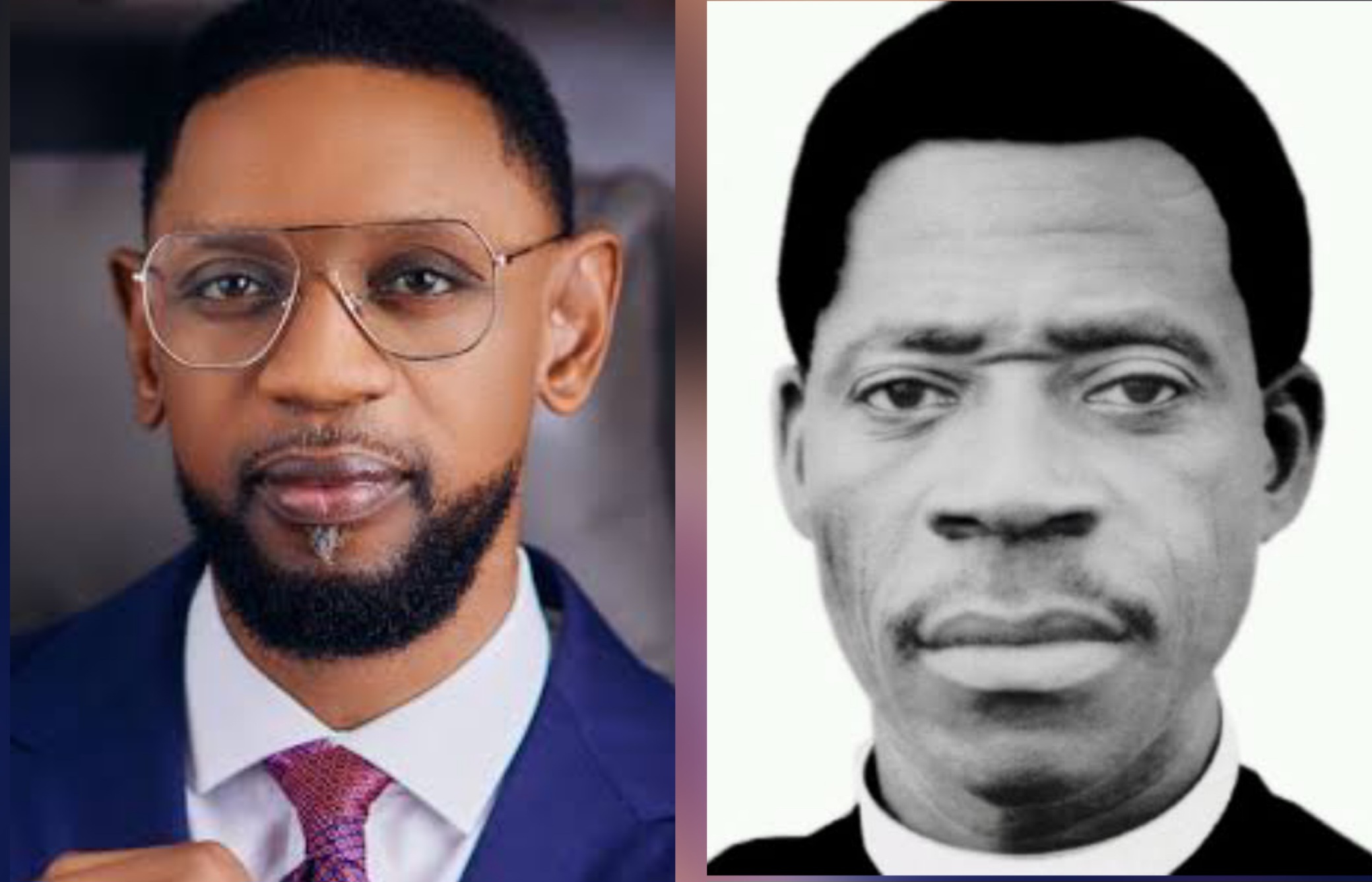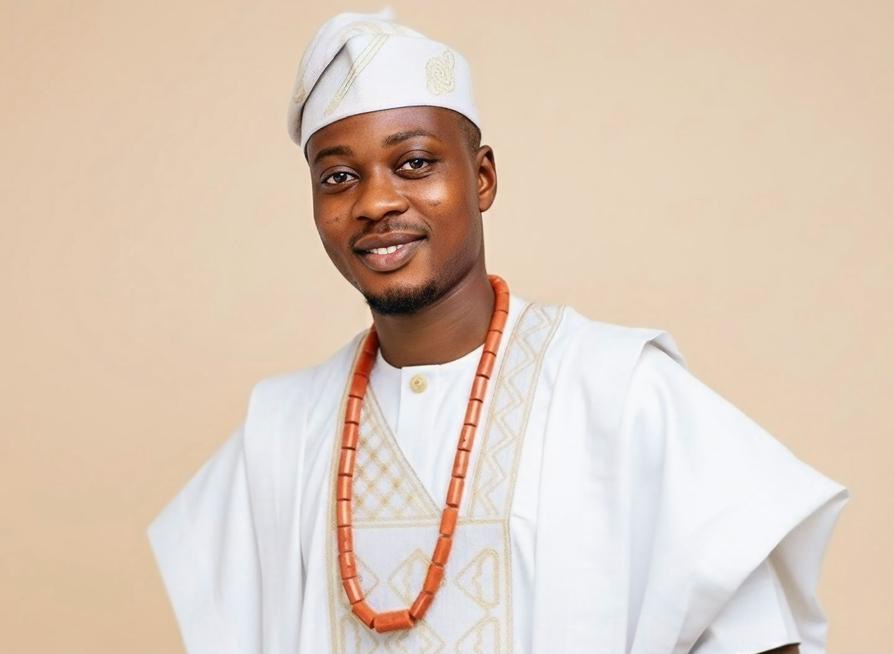Lifestyle
Attacks On Apostle Ayo Babalola: CAC Replies Pastor Fatoyinbo With Strong Questions

The Christ Apostolic Church (CAC) has issued a strong rebuttal to comments made by Pastor Biodun Fatoyinbo regarding the life and ministry of its first General Evangelist, Apostle Joseph Ayo Babalola.
In a statement signed by Pastor Ade Alawode, Director of Publicity, CAC, the church said it was “necessary to address your recent statements… for the following three reasons: Scriptural Justification… Clarification of Truth… Defense of Legacy.”
The statement was in response to Fatoyinbo’s viral message in which he reportedly acknowledged that Apostle Babalola was highly anointed but “had no money” and went on to ask sarcastically, “Where are his children?”
Click link to read CAC’s Full Statement

Dear Pastor Biodun Fatoyinbo,
Greetings to you in the Name of our Lord and Saviour, Jesus Christ.
Ordinarily, we do not respond to social media commentaries or controversies. However, we consider it necessary to address your recent statements, which have been widely circulated on your social media platforms, for the following three reasons:
1. Scriptural Justification — The Bible permits us to respond wisely to folly to prevent arrogance (Proverbs 26:5).
2. Clarification of Truth — To correct the misleading narrative you are promoting about ministry and wealth.
3. Defense of Legacy — To address the inaccurate claims you’ve made regarding the life and ministry of Apostle Joseph Ayo Babalola, the first General Evangelist of Christ Apostolic Church.
In one of your trending messages on YouTube, you acknowledged that Apostle Babalola was highly anointed but “had no money”, and then went on to ask sarcastically, “Where are his children?” — a question that was both insensitive and ill-informed.
To equate anointing or ministerial success with material wealth is biblically flawed. The words of Jesus are clear:
“Take heed and beware of covetousness, for one’s life does not consist in the abundance of the things he possesses.” — Luke 12:15.
Yet, your teachings suggest otherwise.
In doing so, you promote what the Bible refers to as Simony — the monetization of spiritual gifts (Acts 8:18–24). The Scriptures do not teach that money is a sign of anointing. Rather, “the love of money is the root of all kinds of evil” (1 Timothy 6:10). Which Bible do you read and preach from?
On the Question of Apostle Babalola’s Children
Ethically speaking, Apostle Babalola had children. Simple arithmetic should help you understand that they would be advanced in age by now — possibly your grandparents’ age. What did you hope to achieve with the mocking question, “Where are the children of Babalola?”
Your statement reflects more on the kind of company you keep, but as a preacher of the Word, shouldn’t your conduct and utterances be guided by Scripture?
Where in the Bible does your brand of prosperity theology originate — one that demeans people for not being wealthy? Isn’t such a message encouraging greed, corruption, and godlessness, especially in a nation already struggling with moral decay?
Setting the Record Straight
For the sake of truth and posterity, let me correct the public misrepresentations you’ve made regarding Apostle Joseph Ayo Babalola:
1. Calling
Apostle Babalola was called by God on October 10, 1928, at the age of 24. His ministry spanned Western and Midwestern Nigeria, and extended to the Gold Coast (now Ghana), marked by undeniable signs and wonders.
2. Wealth and Lifestyle
He was blessed — but not materialistic or greedy. He gave lands to the Church, supported the education of many, fed the poor, and lived sacrificially. He housed more people than just his biological children.
When Queen Elizabeth II visited Nigeria in February 1956, Apostle Babalola was among the honored guests. Would a man in rags be granted such recognition by a colonial government? Certainly not.
He was no fundraiser, yet God supplied his needs. His diaries are filled with divine provisions like: “Ipese Olorun loni: £100.00, £50.00…”
He lived in a befitting home, drove one of the best Ford Jeeps of his time, and funded weddings, education, and apprenticeship programs — all without exploiting the pulpit.
3. Family
His children — Mama Eunice Wuraola Ogini and Apeke Adeniyi — are alive, blessed, fulfilled, and quietly serving the Lord in their respective churches. They are not loud, ostentatious, or greedy.
4. Legacy
Apostle Babalola’s anointing impacted generations. More than 66 years after his passing, his legacy continues to inspire and bless countless lives and ministries. That is true impact.
Let me pose a question to you:
When Peter said in Acts 3:6, “Silver and gold I do not have…” — was he still anointed or not?
I leave that for you to ponder.
5. Conclusion
The measure of a believer’s anointing is not in material accumulation, but in sacrificial service.
“For the Kingdom of God is not eating and drinking, but righteousness and peace and joy in the Holy Spirit.” — Romans 14:17.
Jesus taught:
“Whoever desires to be great among you, let him be your servant… just as the Son of Man did not come to be served, but to serve.” — Matthew 20:25–28.
Once again,
“Take heed and beware of covetousness, for one’s life does not consist in the abundance of the things he possesses.” — Luke 12:15.
May God give us all the grace to rightly divide the Word of Truth, and to walk in humility, reverence, and godly wisdom.
Pastor Ade ALAWODE (Director of Publicity, Christ Apostolic Church)
Lifestyle
Ooni Congratulates Prince Adekanmbi As Oniko-Elect

The Permanent Chairman of the Southern Nigeria Traditional Rulers Council (SNTRC), Arole Oodua Olofin Adimula and the Natural Head of the Oduduwa race worldwide, the Ooni of Ife, Ooni Adeyeye Enitan Ogunwusi, CFR, Ojaja II has congratulated Prince Sunday Adekanmbi Olayode Asinloye II on his emergence as the Oniko-Elect of Ikolaje Idiriko Kingdom in Ipokia Local Government Area of Ogun State.
Prince Adekanmbi was elected and formally appointed as the Oniko-Elect on 10th February, 2026, by the Ikolaje Idiriko Council of Kingmakers, following due traditional processes and consultations in line with the customs of the ancient kingdom.
In a press statement issued on Monday and signed by the Director of Media and Public Affairs, Ooni’s Palace, Otunba Moses Olafare, the Ooni described the emergence of Prince Adekanmbi as a testament to divine favour and the collective will of his people.
According to the statement, the Ooni commended the kingmakers for conducting a peaceful and credible selection process, noting that the stability of traditional institutions remains vital to cultural preservation and grassroots development across Yorubaland.
The Ooni urged the Oniko-Elect to embrace humility, wisdom and inclusiveness in the discharge of his royal duties, stressing that the throne is a sacred trust that demands selfless service, integrity and unwavering commitment to the welfare of the people.
He further prayed for divine guidance, long life and a peaceful reign for Prince Adekanmbi, expressing confidence that his ascension would usher in a new era of unity, growth and prosperity for Ikolaje Idiriko Kingdom.
The Ooni also reaffirmed the importance of synergy among traditional rulers in Ogun State and beyond, emphasising the need for collaboration in promoting peace, security and socio-economic advancement within their respective domains.
Signed,
Otunba Moses Olafare,
Director, Media & Public Affairs,
Ooni’s Palace,
Ile-Ife.
Lifestyle
Watch: Trending Video Of Gen. Diya Crying, Begging Late General Sani Abacha Surfaces Online

Former Ogun State Leader, General Oladipo Diya, grovelling at General Sani Abacha’s feet, crying and begging the late Head Of State over the 1997 coup allegation.
Gen. Diya was crossed examined at the Human Rights Violation Commission (HRVIC) on the coup plan 1997 to overthrow Gen. Sanni Abacha. He bluntly denied the fact that he was part of the plan but he admitted he knew about the plan.
He further explained that he was afraid of being killed by the Coup Master Planner if he revealed the plan. He denied pleading with Gen. Sanni Abacha but was shocked to see the video where he truly knelt down before Gen. Sanni Abacha as tendered by the Lawyer.
Gen. Diya Oladipo then was appointed as Chief of Defense Staff. He was appointed Chief of General Staff in 1993 and Vice Chairman of the Provisional Ruling Council in 1994. In 1997 Diya and dissident soldiers in the military allegedly planned to overthrow the regime of Sani Abacha.
The alleged coup was uncovered by forces loyal to Abacha, and Diya and his cohorts were jailed. Diya was tried in a military tribunal and was given the death penalty. pon the untimely death of Abacha in 1998, Diya was pardoned by the late Head of State’s successor, Abdusalami Abubakar.
Below is a leaked video clip
Lifestyle
BREAKING!!! Panic As Tinubu Collapses And Fall In Turkey [VIDEO]

A video has emerged showing the moment President Bola Ahmed Tinubu momentarily tripped during his state visit to Turkey, according to Naija News.
Naija News reports that President Tinubu had on Monday arrived Ankara, the capital of Turkey for a state visit.
According to a statement by the Special Adviser to the President on Information and Strategy, Bayo Onanuga, the visit to Turkiye is aimed at deepening cooperation in key sectors including security, education, social development, innovation, and aviation.
Onanuga noted that the trip follows an earlier official visit to Nigeria by Turkish President Recep Tayyip Erdoğan between October 19 and 20, 2021, which reinforced diplomatic ties between Abuja and Ankara.
During President Tinubu’s visit, both countries are expected to hold strategic political and diplomatic engagements focused on shared interests in finance, communication, trade, and investment.
The programme will also feature meetings between senior government officials from both nations, alongside the signing of several memoranda of understanding (MoUs) covering scientific research, energy, technical cooperation, media and communications, military collaboration, and protocol.
A business forum will be held on the sidelines of the visit, bringing together Nigerian and Turkish investors to explore opportunities for mutual economic growth, the presidency noted.
Members of the President’s delegation participating in the bilateral engagements include the Minister of Foreign Affairs, Yusuf Tuggar; the Attorney General of the Federation and Minister of Justice, Lateef Fagbemi, SAN; the Minister of Defence, General Christopher Musa (rtd); and the Chairman of the House Committee on Defence, Jimi Benson.
Others on the entourage are the Minister of Women Affairs and Social Development, Hajiya Suleiman-Ibrahim; the Minister of Interior, Olubunmi Tunji-Ojo; the Minister of Culture and Creative Economy, Hannatu Musawa; the National Security Adviser, Malam Nuhu Ribadu; and the Director-General of the National Intelligence Agency, Mohammed Mohammed.
Culled from Naija News
-

 Politics2 days ago
Politics2 days agoAssembly Confirms Popular Redeemed Pastor As Deputy Governor
-

 Foreign2 days ago
Foreign2 days agoCabinet Reshuffle: President Sacks Finance Minister
-

 Business2 days ago
Business2 days agoJUST IN: 13 Banks May Shut Down In March As CBN Confirms 20 Safe For Recapitalisation Deadline
-

 Politics8 hours ago
Politics8 hours agoBREAKING: “Serial Disrespect” Sparks Drama As Senate Order Arrest Of Tinubu’s Appointee
-

 Politics8 hours ago
Politics8 hours agoOpposition Leaders Urge N’Assembly To Begin Fresh Electoral Act Amendment
-

 Opinion8 hours ago
Opinion8 hours agoEdo State To Spend N1billion On Armoured Car For Speaker, N4.6billion On Vehicles For Lawmakers




